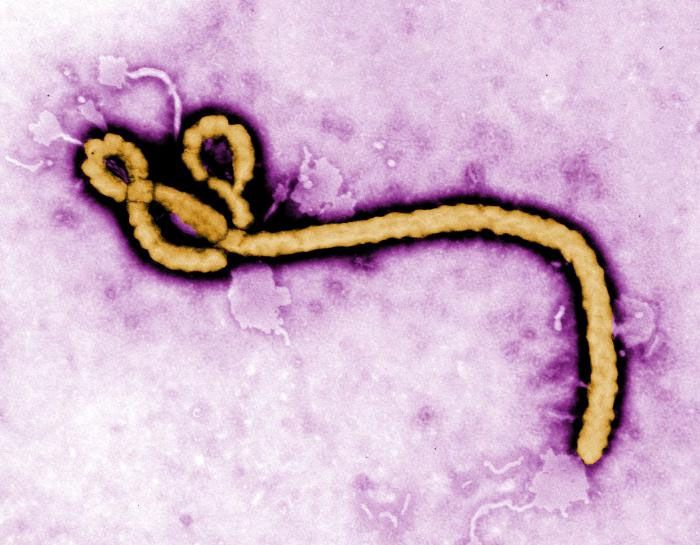
An Ebola outbreak has killed up to 59 people in Africa.
The outbreak, which has been going on in the southeastern region of Guinea since February, has infected at least 80 people so far, and may have spread to neighboring Sierra Leone, according to the government.The World Health Organization is sending a team to do additional testing, as well as sending more than 30 tons of medical supplies, including isolation chambers and medicine for treating fever, Reuters reported.
Ebola is a hemorrhagic virus that spreads through bodily fluids and can cause high fevers, diarrhea, vomiting, and internal and external bleeding. There is no vaccine or cure for the virus and it can be fatal up to 90 percent of the time, according to the National Institutes of Health. Animals are thought to be the natural hosts for the disease, which has been transmitted to humans via chimpanzees, gorillas and monkeys.
Follow Tia Ghose on Twitter and Google+. Follow Live Science @livescience, Facebook & Google+.
Sign up for the Live Science daily newsletter now
Get the world’s most fascinating discoveries delivered straight to your inbox.

Tia is the managing editor and was previously a senior writer for Live Science. Her work has appeared in Scientific American, Wired.com and other outlets. She holds a master's degree in bioengineering from the University of Washington, a graduate certificate in science writing from UC Santa Cruz and a bachelor's degree in mechanical engineering from the University of Texas at Austin. Tia was part of a team at the Milwaukee Journal Sentinel that published the Empty Cradles series on preterm births, which won multiple awards, including the 2012 Casey Medal for Meritorious Journalism.











